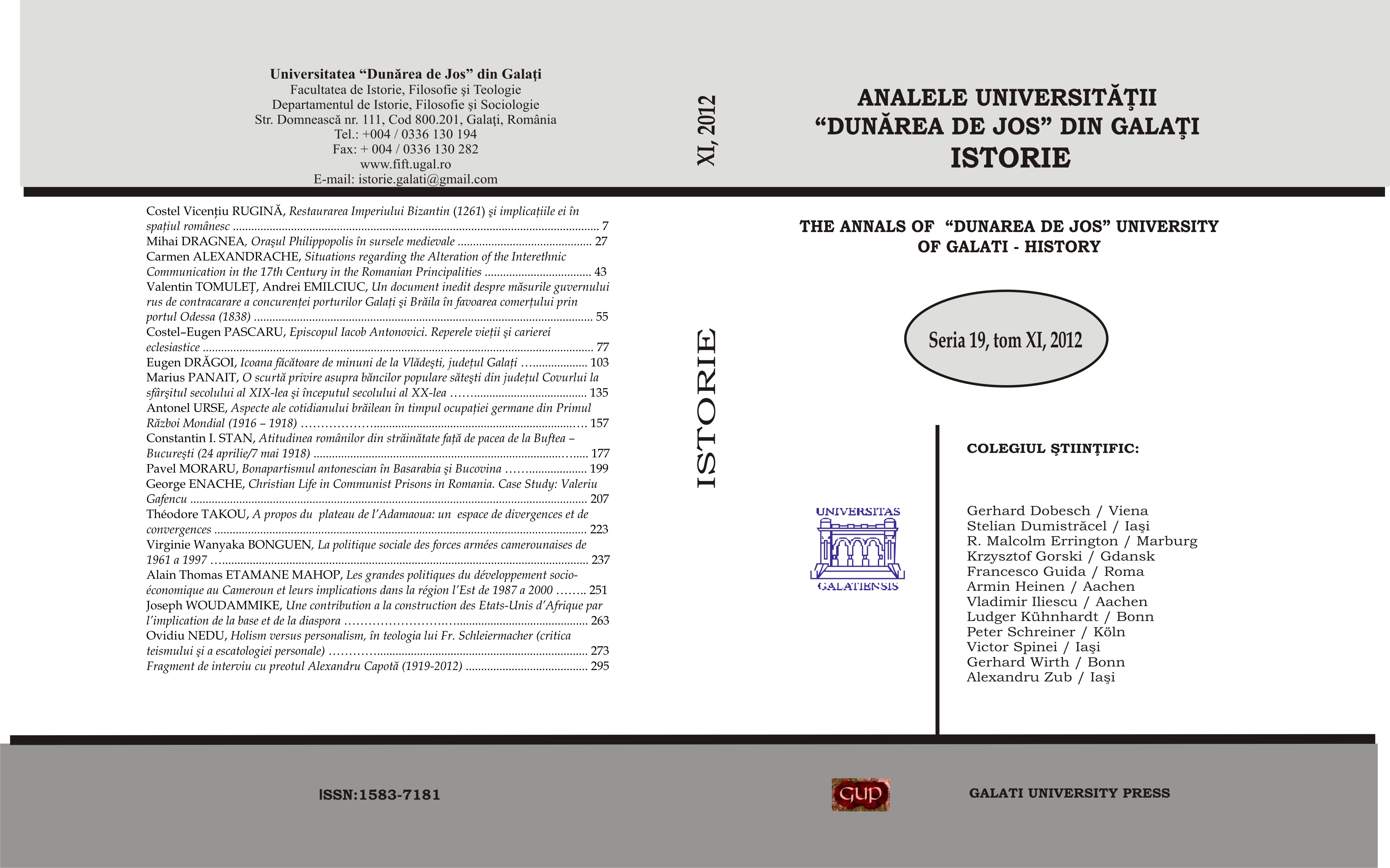Holism versus personalism, în teologia lui Fr. Schleiermacher (critica teismului şi a escatologiei personale)
Holism versus Personalism, in the Theology of Fr. Schleiermacher (Rejection of Theism and of Personal Eschatology)
Author(s): Ovidiu Cristian NeduSubject(s): Cultural history
Published by: Galaţi University Press
Keywords: Schleiermacher; liberal theology; person; panentheism; theism; holism; eschatology
Summary/Abstract: Traditionally, Christian metaphysics relied to a very high extent on the concept of „person”. The personal condition was an irreducible ontological unit, both in case of the divine nature and in case of human nature, under all its modalities. Liberal theologies, starting even with the founder of Liberalism, Friedrich Schleiermacher, challenged this approach, considering it as the result of a naive and archaic view of the Universe and of the deity. Instead of it, they proposed a holist theology, where everything exists for the sake of its participation in the Whole (considered either as the divinity itself or, at least, as a perfect aspect of the divine). Schleiermacher proposes a kind of Panentheism, that sees the Universe, the harmonic totality as the divine aspect the most proximate to human experience; hence, Schleiermacher bases all his theological debates on this holist concept of the divine, without going further into ontological analysis and discarding the traditional theistic view. Also, the human personality is not seen anymore as ultimate, but rather as a „function”, a „part” of the whole, which finds its reasons to be not in individual preservation, in individual post-mortem survival (as in traditional theologies), but in its total surrendering and even dissolution into Totality.
Journal: Analele Universităţii Dunărea de Jos din Galaţi. Seria Istorie
- Issue Year: 2012
- Issue No: 11
- Page Range: 273-294
- Page Count: 22
- Language: Romanian

